Gardener Queens Park: Nurturing Green Spaces in the Heart of the City
Queens Park has long been a cherished green space in the city, offering residents a tranquil escape from the urban hustle. At the center of maintaining this oasis is the dedicated team of gardeners who ensure the park remains lush, vibrant, and welcoming throughout the year.
The role of a gardener in Queens Park goes beyond planting and pruning. These professionals are passionate about creating sustainable environments, promoting biodiversity, and enhancing the natural beauty of the park. Their expertise ensures that each season brings a new burst of color and life to the landscape.
One of the key responsibilities of Queens Park gardeners is garden maintenance. This includes regular lawn care, flower bed upkeep, and tree management. By meticulously tending to these areas, gardeners help prevent the spread of diseases and pests, ensuring the health and longevity of the park's flora.
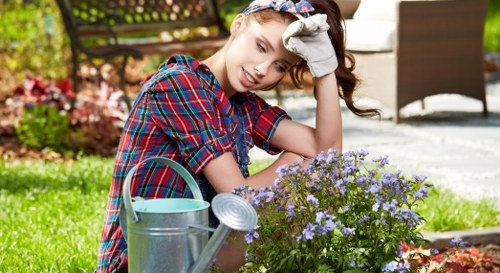
In addition to routine maintenance, gardeners in Queens Park are also involved in the design and implementation of new planting schemes. They carefully select plant species that thrive in the local climate, ensuring that the park remains resilient against weather changes and other environmental challenges. This thoughtful planning contributes to the park's sustainability and aesthetic appeal.
Community engagement is another important aspect of the gardeners' work. By organizing workshops and guided tours, they educate the public about the importance of gardening and environmental stewardship. These initiatives foster a sense of ownership and pride among residents, encouraging them to take an active role in preserving Queens Park.
The gardeners also collaborate with local schools and organizations to promote gardening as a fun and educational activity for children. By introducing young minds to the wonders of nature, they inspire the next generation to continue the legacy of caring for green spaces.
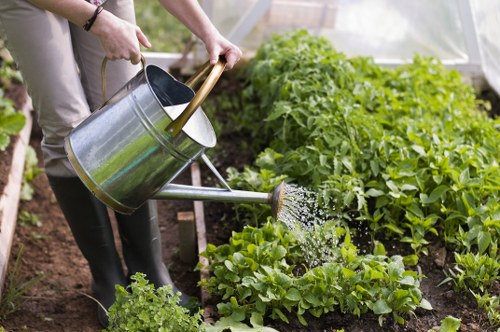
Environmental sustainability is at the forefront of Queens Park gardeners' efforts. They implement eco-friendly practices such as composting, rainwater harvesting, and the use of native plants. These initiatives not only reduce the park's ecological footprint but also enhance the resilience of the plant life against climate variability.
Seasonal events and festivals are made possible through the hard work of the gardeners. From spring flower festivals to autumn leaf displays, these events celebrate the changing seasons and showcase the park's natural beauty. The gardeners' meticulous planning and execution ensure that each event is a success, drawing visitors from all around the city.
Furthermore, the gardeners play a crucial role in maintaining the park's pathways and recreational areas. By ensuring that trails are clear and safe, they provide a pleasant experience for joggers, cyclists, and families enjoying a leisurely stroll.
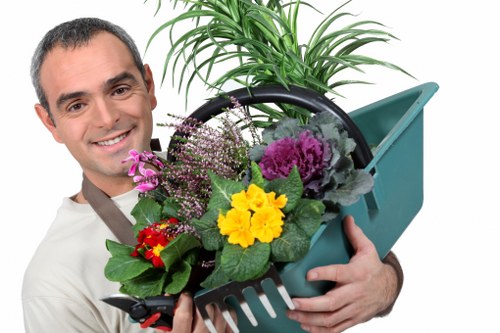
Queens Park is home to a diverse range of plant species, thanks to the gardeners' careful selection and maintenance. From vibrant tulips in the spring to sturdy oaks in the fall, each plant adds to the park's rich tapestry of colors and textures. The gardeners' knowledge of horticulture allows them to create harmonious landscapes that are both beautiful and functional.
Wildlife conservation is another area where Queens Park gardeners make a significant impact. By creating habitats that support local fauna, they encourage biodiversity and promote a balanced ecosystem. Birdhouses, insect hotels, and butterfly gardens are some of the features that attract a variety of species, enriching the park's natural life.
The gardeners also address issues related to invasive species and ensure that the park's native plants are protected and thrive. Their proactive approach helps maintain the ecological integrity of Queens Park, making it a haven for both people and wildlife.
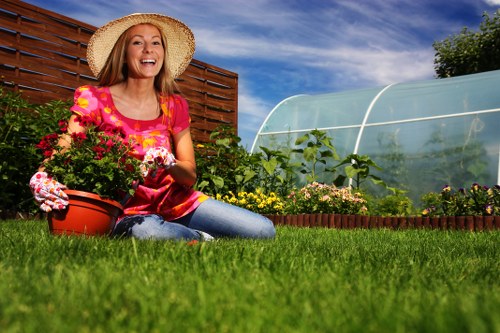
Gardeners in Queens Park stay updated with the latest gardening techniques and trends. Continuous professional development allows them to implement innovative solutions that enhance the park's beauty and sustainability. Whether it's experimenting with new plant varieties or adopting advanced irrigation systems, their commitment to excellence is evident in every aspect of their work.
The collaboration between gardeners and local authorities ensures that Queens Park remains a priority in urban planning and development. By working together, they address challenges such as urban sprawl, pollution, and climate change, safeguarding the park for future generations.
Volunteer programs are another vital component of Queens Park's gardening efforts. By involving community members in gardening activities, the park becomes a collective project that strengthens community bonds and fosters a shared responsibility for maintaining the green space.
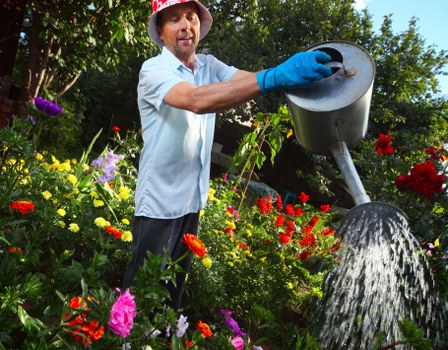
Tools and Techniques Used by Queens Park Gardeners
Gardening requires a variety of tools and techniques to ensure the park remains in pristine condition. Queens Park gardeners utilize both traditional and modern tools to perform their duties efficiently.
Hand Tools: Essential for precision work, hand tools like pruners, trowels, and hoes are used for planting, weeding, and trimming plants. These tools allow gardeners to manage smaller areas with accuracy.
Power Tools: For larger tasks such as mowing lawns and trimming overgrown trees, power tools like lawnmowers and chainsaws are indispensable. These tools help maintain the park's extensive greenery effectively.
Organic Gardening Practices
Queens Park gardeners prioritize organic gardening practices to promote environmental health. By avoiding harmful chemicals and pesticides, they ensure that the park's ecosystem remains balanced and safe for all its inhabitants.
Composting: Organic waste from the park is composted and reused as natural fertilizer, enriching the soil and reducing the need for synthetic alternatives. This practice supports sustainable gardening and minimizes waste.
Integrated Pest Management (IPM): Instead of relying on chemical pesticides, gardeners use IPM techniques to control pests. This includes introducing beneficial insects, using physical barriers, and monitoring pest populations to manage them naturally.
Water Conservation Strategies
Water conservation is a critical focus for Queens Park gardeners, especially in times of drought or water scarcity. Implementing efficient irrigation systems and selecting drought-resistant plants are key strategies used to manage water usage effectively.
Drip Irrigation: This method delivers water directly to the plant roots, minimizing evaporation and ensuring that water is used efficiently. Drip irrigation systems are especially useful for flower beds and vegetable gardens.
Rainwater Harvesting: Collecting and storing rainwater for later use reduces the reliance on municipal water supplies. This sustainable practice helps maintain the park's greenery even during dry periods.
Seasonal Planting and Care
Gardener Queens Park expertly manage the cyclical nature of gardening by planning and executing seasonal planting and care routines. Each season brings unique challenges and opportunities to enhance the park's landscape.
Spring: The focus is on planting new flowers and trees, as well as preparing the soil for the growing season. Gardeners also address any winter damage and restore the park's vibrancy.
Summer: Maintaining hydration levels and protecting plants from excessive heat are primary concerns. This includes regular watering, shading, and pest control measures.
Autumn
In autumn, gardeners focus on cleaning up fallen leaves, pruning dead branches, and preparing plants for the winter months. This helps prevent disease and supports healthy growth in the spring.
Winter: Winter care involves protecting sensitive plants from frost, maintaining pathways, and ensuring that the park remains safe and accessible despite the cold weather.
By tailoring their care to each season, Queens Park gardeners ensure that the park remains beautiful and healthy all year round.
Tools and Techniques in Action
Implementing the right tools and techniques is essential for the success of Queens Park gardeners. Their strategic approach ensures that every aspect of the park is well-maintained and thriving.
Soil Health: Understanding soil composition and fertility allows gardeners to choose the appropriate plants and fertilization methods. Healthy soil is the foundation of a vibrant garden.
Plant Selection: Selecting the right plants for the local climate and soil conditions ensures that they flourish with minimal intervention. Native plants are often preferred for their resilience and ability to support local wildlife.
Community and Collaboration
Collaboration is key to the success of Queens Park's gardening initiatives. Gardeners work closely with local authorities, community groups, and volunteers to achieve common goals.
Partnerships with Schools: By partnering with local schools, gardeners provide educational opportunities that teach children about the importance of gardening and environmental conservation.
Volunteer Programs: Engaging volunteers in gardening projects fosters community spirit and encourages collective responsibility for maintaining the park's beauty.
Innovative Gardening Solutions
Queens Park gardeners are always on the lookout for innovative solutions to improve their gardening practices. From vertical gardens to smart irrigation systems, they embrace new technologies and ideas that enhance efficiency and sustainability.
Vertical Gardening: Utilizing vertical spaces for planting maximizes the use of available areas and adds visual interest to the park.
Smart Irrigation: Advanced irrigation systems with sensors and automated controls ensure optimal water usage, reducing waste and maintaining plant health.
Challenges Faced by Queens Park Gardeners
Maintaining Queens Park comes with its own set of challenges. Gardeners must navigate issues such as climate change, urban pollution, and limited resources to keep the park in top condition.
Climate Change: Shifting weather patterns require gardeners to adapt their practices, selecting plant varieties that can withstand extreme conditions and adjusting care routines accordingly.
Urban Pollution: Air and soil pollution can adversely affect plant health. Gardeners implement strategies to mitigate these effects, such as planting pollution-tolerant species and improving soil quality.
Success Stories
Queens Park has witnessed numerous success stories thanks to the diligent efforts of its gardeners. From transforming neglected areas into blooming gardens to restoring endangered plant species, their work has left a lasting positive impact on the community and the environment.
One notable achievement is the restoration of the native wildflower meadow. This project not only enhanced the park's beauty but also provided a habitat for local pollinators, contributing to the overall health of the ecosystem.
Another success story involves the implementation of a community composting program. By recycling organic waste, gardeners have improved soil fertility and reduced the park's environmental footprint.
Future Plans for Queens Park Gardening
The future looks bright for Queens Park, with gardeners planning to introduce new initiatives aimed at further enhancing the park's sustainability and appeal.
Expansion of Green Spaces: Plans are underway to expand existing gardens and create new green areas, providing more space for recreation and relaxation.
Enhanced Biodiversity: Gardeners aim to increase the variety of plant and animal species in the park, fostering a more dynamic and resilient ecosystem.
Technology in Gardening
Embracing technology is vital for modern gardening practices. Queens Park gardeners utilize various technological tools to streamline their work and improve outcomes.
Garden Management Software: This software helps gardeners schedule tasks, track plant health, and manage resources efficiently.
Drones: Drones are used for aerial surveys, allowing gardeners to monitor large areas of the park quickly and identify maintenance needs.
Gardening as Therapy
Gardening is not only beneficial for the environment but also serves as a therapeutic activity for many individuals. Queens Park offers gardening programs that promote mental well-being and physical health.
Therapeutic Gardening: Engaging in gardening activities can reduce stress, improve mood, and enhance overall mental health. These programs are especially beneficial for seniors and those recovering from illnesses.
Physical Activity: Gardening provides a moderate form of exercise, helping to improve strength, flexibility, and cardiovascular health.
Environmental Education
Queens Park gardeners are committed to environmental education, ensuring that visitors understand the importance of preserving green spaces.
Workshops and Seminars: Regular workshops and seminars are conducted to educate the public on topics such as sustainable gardening, composting, and wildlife conservation.
Interactive Displays: Informative displays throughout the park highlight key environmental concepts and showcase the benefits of various plants and gardening practices.
Nearby Areas to Queens Park
Queens Park is surrounded by a number of vibrant neighborhoods, each offering unique features and easy access to the park's green spaces. Here are some of the closest areas:
- Hillcrest: Just north of Queens Park, Hillcrest is known for its charming streets and community gardens.
- Maple Grove: Located to the east, Maple Grove boasts beautiful tree-lined avenues and recreational facilities.
- Lakeside: South of Queens Park, Lakeside offers picturesque views and waterfront activities.
- Greenfield: West of the park, Greenfield is famous for its extensive walking trails and nature reserves.
- Brookside: This neighborhood to the northwest features family-friendly parks and playgrounds.
- Sunnyvale: Nearby to the northeast, Sunnyvale is celebrated for its sunny parks and vibrant community events.
- Riverview: Adjacent to Queens Park, Riverview is known for its riverside paths and outdoor cafes.
- Oakwood: Southeast of the park, Oakwood offers historical sites and beautifully maintained gardens.
- Pine Hollow: Located southwest, Pine Hollow is a hub for outdoor enthusiasts with its hiking and biking trails.
- Cedar Park: Close to the west, Cedar Park features dense cedar forests and serene picnic spots.
- Elmwood: Northeastern to Queens Park, Elmwood is renowned for its elm-lined streets and seasonal festivals.
- Willow Bend: To the southeast, Willow Bend is home to lush willow trees and peaceful walking paths.
- Silver Lake: Northwest of the park, Silver Lake offers a scenic lake for boating and fishing.
- Crystal Springs: Situated to the northeast, Crystal Springs is famous for its sparkling streams and vibrant plant life.
- Autumn Ridge: Close to the south, Autumn Ridge is known for its fall foliage and scenic overlooks.
Conclusion
Gardener Queens Park plays an indispensable role in maintaining one of the city's most beloved green spaces. Through their dedication, expertise, and community-focused approach, they ensure that Queens Park remains a vibrant, sustainable, and welcoming environment for all to enjoy. Whether it's through meticulous maintenance, innovative gardening practices, or community engagement, the gardeners' contributions significantly enhance the quality of life for residents and visitors alike.
As Queens Park continues to evolve, the gardeners remain committed to preserving its natural beauty and ecological integrity. Their ongoing efforts promise to keep the park thriving for generations to come, making it a true jewel in the heart of the city.
Frequently Asked Questions
1. What services do gardeners in Queens Park provide?
Gardeners in Queens Park offer a range of services including garden maintenance, planting and pruning, landscape design, pest management, and implementing sustainable gardening practices.
2. How can the community get involved with gardening initiatives in Queens Park?
Community members can participate in volunteer programs, attend workshops and seminars, and join gardening clubs or groups that collaborate with the Queens Park gardeners.
3. What are the benefits of native plants in Queens Park?
Native plants are well-suited to the local climate and soil conditions, require less maintenance, support local wildlife, and enhance the ecological balance of Queens Park.
4. How do Queens Park gardeners ensure environmental sustainability?
They use eco-friendly practices such as composting, rainwater harvesting, integrated pest management, and selecting drought-resistant and native plant species to minimize the park's ecological footprint.
5. Can schools and educational institutions collaborate with Queens Park gardeners?
Yes, schools can partner with Queens Park gardeners for educational programs, field trips, and gardening projects that teach students about horticulture and environmental conservation.